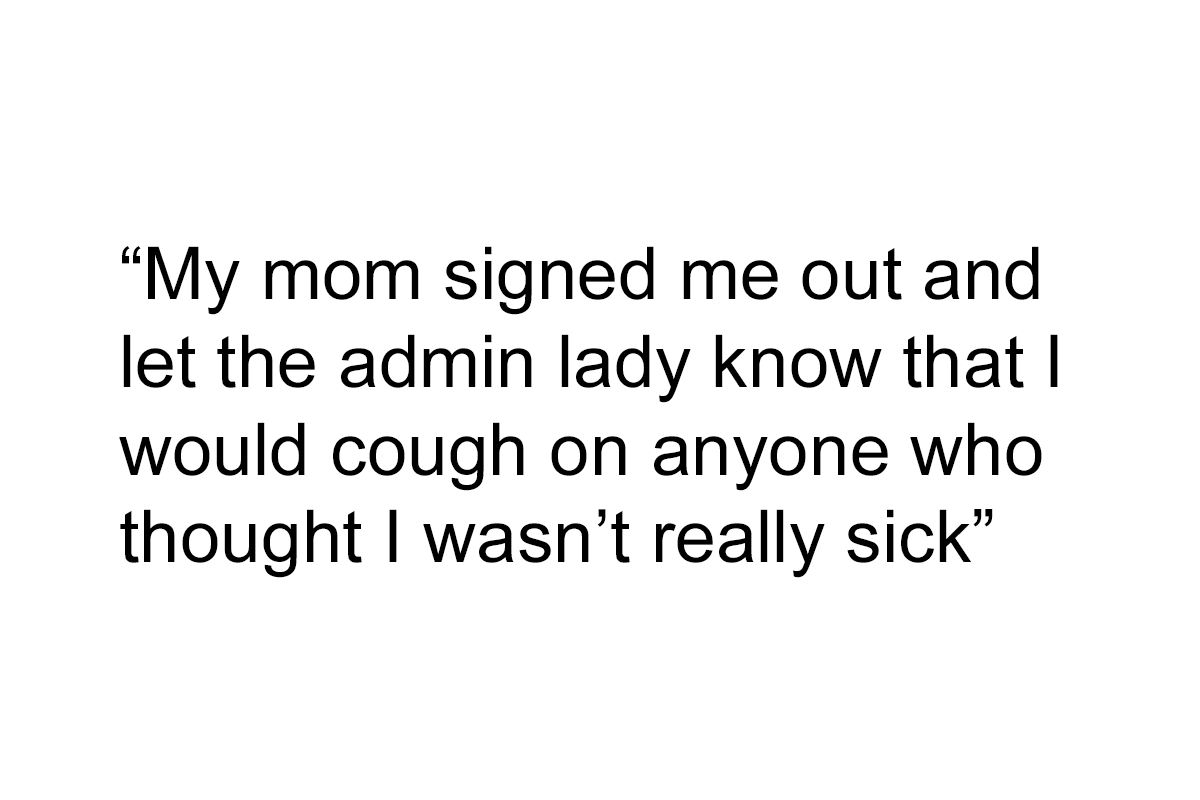
Mom Is Tired Of Calls From School Demanding She Bring Her Daughter To Class Because They Don’t Believe She’s Actually Sick, So She Maliciously Complies
Children try to avoid school for various reasons. So when Reddit user kissmegoodbi had missed class for an entire month, the main office got suspicious.
Even her mom, who repeatedly reassured them that her daughter was, in fact, ill couldn’t convince anyone.
So when the administrator threatened the family with social services, the woman decided that enough was enough, put a mask on her child, and took her to school with a highly contagious disease. She didn’t think anything else would suffice.
Years later, kissmegoodbi remembered the story and recently told it to the subreddit r/MaliciousCompliance. Here’s how the entire thing played out.
After a month of absence, her school didn’t believe this girl was actually sick and threatened her mom with social services
Image credits: Kelly Sikkema (Not the actual photo)
So the woman took the child to class with a highly contagious disease to prove it
According to Mayo Clinic, whooping cough (pertussis) is a respiratory tract infection—in many people, it’s marked by a severe hacking cough followed by a high-pitched intake of breath that sounds like “whoop.”
Before the vaccine was developed, whooping cough was considered a childhood disease, but now it primarily affects children too young to have completed the full course of vaccinations as well as teenagers and adults whose immunity has faded.
Deaths associated with the disease are rare and most commonly occur in infants. (That’s why it’s so important for pregnant women and other people who will have close contact with an infant to be vaccinated against whooping cough.)
Image credits: Kelly Sikkema (Not the actual photo)
Image credits: kissmegoodbi
As absurd as this particular case sounds, absenteeism is an issue in many schools.
“Students who are chronically absent—meaning they miss at least 15 days of school in a year—are at serious risk of falling behind,” the U.S. Department of Education said.
The numbers for the Civil Rights Data Collection (CRDC) were drawn from nearly every public school in the country and revealed that over 7 million students missed 15 or more days of school in 2015–16. (That’s 16 percent of the student population—or about 1 in 6 students.)
Although “unacceptable levels” of chronic absenteeism were found among all students, compared to their white peers, American Indian and Pacific Islander students were over 50 percent more likely to lose three weeks of school or more, while black students were 40 percent more likely, and Hispanic students were 17 percent more likely.
“Research suggests the reasons for chronic absenteeism are as varied as the challenges our students and families face—including poor health, limited transportation, and a lack of safety — which can be particularly acute in disadvantaged communities and areas of poverty,” the U.S. Department of Education added.
Different countries tackle this problem in different ways. Parents in England, for example, are being hit with an increasing number of fines as schools try to discourage children from missing school.
The number of non-attendance fines being handed out dropped off during the pandemic, as self-isolation rules and lockdowns led to millions of children learning at home, but there has been growing concern since it was revealed that almost 1.8 million children regularly missed school in the first term of this academic year.
As part of a mission to tackle this, parents have been fined £3.7M ($4.4m) for the school year so far, according to figures obtained by the BBC.
People had a lot to say about this ordeal and many of them shared similar stories of their own
As for whooping cough, we are still trying to eradicate it.
In fact, UK scientists are offering to pay people £3,775 ($4,500) to get infected with it as part of a vaccine trial.
Britons are being urged to take part in the study that would see them deliberately exposed to the bacterial infection after receiving the jab—they will then be monitored in a hotel room for 16 nights, where all their meals will be provided, to see how their condition develops.
The University Hospital Southampton are recruiting healthy 18 to 50-year-olds who live in the city to test the new nasal spray vaccine called BPZE1.
Even though a shot for whooping cough already exists, it cannot stop upper airway infections and does not prevent people from spreading it to others.
Your mom should have send you directly to talk with the admin lady and cough on her. No need for the extra steps, but i apreciate your moms effort to fight stupid assholes.
A friend's kid broke his ankle in gym class at the start of the day. Because he had a reputation for disturbances, they refused to believe him. Made him finish out the gym class (happened in the first half of class), and walk around on it all day. When he came home, she went ballistic. The school and involved teachers tried to make excuses, and then when the Complaint was made, they all stated he had not made any claims. At least 4 people whom should never be allowed around kids anymore, and nothing done, because they lied through their teeth, and used his history as a shield.
I had a similar experience but for the opposite reason. Broke my arm while playing tag at school during the morning break. Bone was visibly misaligned but all they did was give me an ice pack cause I guess I didn’t complain enough. My mom wasn’t too pleased with the school either when I came home… I feel really sorry for your friend’s kid though, an experience like that can really harm your trust in others (I was fine, just remember having to do the Macarena with one bent arm. My personal issues stem from other experiences 😄)
Load More Replies...When I had chicken pox at 16 or 17 I was home for over a month. We got a doctors notice and gave it to my mentor (teacher "in charge" of me) and thought that was it. When I came back all other teachers and my class mates were amazed, they thought I'd dropped out since he hadn't informed anyone. Somehow this was my fault as I should've known he wasn't reliable and should have expected home work.
A person can be ill for *years*, so.... yeah, screw that administrator. They're not a doctor. Epstein-Barr virus (mono) can lay a person flat for six weeks; measles with complications, ditto; flu with complications, same; Covid, same; I can go on for another ten illnesses. And that doesn't count ones that cause diarrhea as a primary symptom. Let doctors and patients decide medical care; leave admin and lawyers out of it!
Wait, medical care should start with medical professionals? Burn the heretic! /s (Seriously though, yes, seems sort of obvious)
Load More Replies...When I was a kid, the schools allowed parents to parent. If they called a child in sick, they were sick with no questions asked. They also sent school work home for the kid to do while they were sick. I was out of school for about a month in 3rd grade. My sister brought my school work home for me and my parents tutored me as needed. This was in 1963 or so. Now, with my grandkids, the school administration acts like the SS. They are the bosses and the parents are idiots. It is totally backward!
Where I live they still don’t ask anything if the kid is sick.
Load More Replies...Went through this with my son this year and him getting strep. I have letters threatening to take me to court even though I complied with the school and health boards new regulations with covid. Covid tests, Dr Apts and notes each and every time. I would get a letter a couple days after he went back threatening court! It's unbelievable. Do you want me to send my child that has a fever and is highly contagious back to class? Like come on people!
Mom to admin:"Are you a doctor?" Admin: "No" Mom to admin: "STFU, MYOB"
I had a really bad reaction to the whooping cough vaccine as a baby, so my mother was too afraid to let my younger sister get it. Lil Sis got whooping cough when she was in middle school, which caused a small outbreak in the school. The CDC had to be officially notified and the school shut down for like 2 weeks.
My son, who is now 27, fell in PE at age 12 while running sprints BACKWARDS as required by the teacher. The nurse called me and said he MIGHT have hurt his right wrist but it wasn't swollen. I took him to the ER and BOTH wrists were broken. This was on a Friday and they had to make him come back that Monday to set them. Fast forward 3 months later after completely being recovered for weeks and he and his best friend almost are attacked by a neighbor's dog. He falls running. The next day he says his arm is numb and goes to the nurse. I take him to his orthopedic doctor and his elbow AND wrist are fractured. I was questioned for nearly an hour and was threatened with DHR. Turns out he was in puberty, had a long growth plate and very high tolerance for pain. He recovered with no further injuries, became a Marine and now is married with a son and baby on the way.
When I was in high school, mom had to be in the hospital. Naturally, I came down with something so bad my hair hurt. Dad's shift started at 6 am, so when he got home he called and said said Mom was in hospital, I'd be out sick for the rest of the week, and not to disturb me. School said that would be fine. The next day, school called. I told them Dad had called and and I'd be out sick, not to disturb me, and was told that was fine, they could call him at work to confirm, and they weren't to disturb me again. The next day they called again. In my fever induced delirium, (not quite high enough for professional attention) I repeated what I'd said the day before in probably a scary voice, and told them I wouldn't want to be them if I told Dad they'd disturbed me with what felt like being headfirst in a trash can with people beating it wit baseball bats. They didn't call again, and I didn't tell Dad because he'd be very upset indeed.
Born with hip displaysia of both hips in 1980, had the Dr just tell my parents to double diaper me until my hips grew into the sockets. Really didn't have much of a problem except for balance issues. Then late 90s, had a PE Teacher have us do Saigon squats in PE, meaning your heels need to be on the floor and because how my legs and hips were, my muscles were too tight to do that. Teacher comes up behind me and pushes me DOWN to the floor and I feel something give in my lower back and pain. I had problems walking after that, like I was walking through a river or something, then started having more and more issues walking. Found out I'd ripped the muscle in my lower back in my mid-teens, thanks to this particular teacher. Never sued her or anything, because we were worried she'd scream "discrimination" for multiple reasons I won't go into. Happened one more time about mid-2000's when I was trying to pull down a 19" CRT from a tip shelf in a computer store. It's no fun..
During high school, I was known to get sick easily every winter. One year, along with another ailment maybe a cold or something i developed a touch of pneumonia. Not enough to get me out of school but enough to limit what activities I could do. I had a health class where the teacher had you do laps everyday as long as it wasnt raining. I gave him a note from my mother detailling my limits but it lasted for 1 day before he had me back outside with everyone else.
I had whooping cough as a kid, it was misdiagnosed and now I have constant breathing issues, no one ever believes I'm sick either
When I was 13 I got really sick. I had no energy so could barely move, constant stomach ache. Saw the GP a few times, got referred to specialists, had numerous blood tests and a hospital stay. All they could determine was that it was a Glandular Fever type virus, I don't think they ever ID'd the virus itself. Not Glandular Fever itself. I missed half a term of school which was approx 2 months.
Actually, I work at a school and because of child abuse situations we need to see the child to make sure they are safe. If something happens to them because we were told they were sick and it wasn't true and they were being abuse--well. People tend to blame the school--"Why didn't the school check up on the kid? Why didn't they call social services?" In this case, if the child has not been seen in so long, they need to see the child to check their status. School administration was supposed to do a home visit by way of a Social Worker. However, saying that the child can't truly be sick is wrong. We don't have to know what's wrong unless the parents tell us---which would be helpful because the doctor's note won't tell us and unless it specifically says "patients should stay home from school for 30 days", the parent was supposed to send an updated doctor's note to the school. People don't understand the responsibility even when they aren't in school.
If your child has a debilitating disease...like asthma, diabetes, autism, ADHD...get a 504 plan. This is a plan that allows special allowances. Your kid can miss school and as long as they keep up with work..days can not be held against them. It also allows more time for testing, other forms of testing, even certain foods and snacks. My daughter was insulin resistant..so she'd have low blood sugar spells, sometimes auras from migraines, she had alpha gal, and lymes. Now she had a small stroke at one time and the school didn't call me, the nurse, the ambulance or anything. They thought she was on drugs..because she couldn't respond to them just sat there with slurred speech and suffering. They just kept shaking her asking what she took. After she gained her speech back she told them to call me...I took her straight to ER and had drug tests and blood work done and for proof to ram up their a*s. She was negative for any drugs..she was dehydrated, all her levels were off and TIA.
I had wc as an adult and it sucked so badly. The fear every time a cough attack came on and knowing how hard it was going to be to get my breath back was real. I feel badly for kids who do not understand what is happening. But that sucking/ whoooooop sound is s for real.
I had chicken pox when I was 1 month old (thanks older bro). I got shingles in 3rd grade and had to stay out if school until the blisters were gone. The school threatened to keep me back a year because I had missed more than 19 days unless I did some special make-up course. My dad threatened to send me to school and give every unvaccinated kid chicken pox. I was allowed to move on to 4th grade with the rest of my class.
I've had debilitating menstrual cramps since I began cycling. Once in 8th grade I passed out whilst walking down the hallway to class from the pain. Mum picked me up, and kept me home until the worst days had passed. Office lady called my mum and told her she knew I was faking and that she would make *her* child crawl to school if they insisted on behaving that way. The amount of humans that should NEVER be allowed to breed or be anywhere near children is astounding.
When I lived in Texas I went to court for truancy and watched a mom get arrested because "cancer isn't an excuse to miss school, I don't care what his doctors said, you can schedule his chemo for 8pm after school, extra curriculars (which he was telling the mother she had to enroll her son in) and homework was complete, and that if she tried to get him treatment on any day before all three were completed then he'd remove her son permanently. She said she wasn't going to force her kid to go to school on chemo when he could do all his schoolwork from home and several different doctors have EXPLICITLY said to keep him home. He had her cuffed and dragged away and made a call to social services to have him put in a temporary foster home until his mom complied.
I hope she got a lawyer and counter-sued that judge. What a prick.
Load More Replies...Question, is the administrator still around after that? That's a threat or coercion to cause harm to a whole family to get what she wanted. Also working out her scope of practice unless she is a licensed practitioner in pediatrics or something similar. And to call someone a liar without actual evidence or supported facts should be liable or reprimanded for lack of ethics and poor judgment.
I grew up with chronic illness, meaning frequent hospital visits, staying inside for recess and needing to wear a mask outside sometimes before it was a ‘trend’ lol. But these illnesses are ‘invisible’. Severe asthma as a child, POTs (heart condition), EDS, and MCAS. I got a 504 and everything in Texas that allowed me to have absences (it’s hard to even get approved for these). Still, I had teachers that were so set on figuring out if I was “really sick”. Cornering me, asking me questions, and even one nearly failing me and convincing me I was bad at writing (only to win a State wide writing contest and get a 99 on my exam the next year). I was forced to make up days I wasn’t supposed to during one summer and run errands for teachers before deciding on online schooling. The education system really needs to learn more about chronic illness and actually READ paperwork. I had a PE teacher that forced me to run as well, ended up in the hospital and my mom surely ripped my coach a new one.
I have a special needs son who has a very firm grasp on what he does and doesn't like/want to do. Meltdowns can not only ruin his day, but yours too. When he's the least bit sick, he only wanted mom. Person's with low income get sick a lot more often than everyone else, which is why minorites miss a lot more school. That said, my son was sick a lot. After he'd missed 5 days of the school year I began getting harassed for every absence. They told me that I had to send him and they'd decide if I needed to come pick him up. Remember, they get money from the government if your kids shows up to school, though less than if they went the whole day. I said no. I told them that this is what we'll do: I'll send him to school when he's sick and they get to keep him the entire day. I told them to talk to his teachers and get back to me. Turns out it was just fine that he missed more than 5 days in the school year at that school.
My teen son missed a lot of school for jaw surgery and then the same year was in the Ped ICU for a week on morphine with a collapsed lung. He was out of danger but being closely monitored. The school recommended sending a traveling teacher over to the hospital to play a 45 min video for him that “counted” as a day at school. It was absurd of course, the video was not part of his 9th grade curriculum, and more importantly he would not even remember it anyway. But it kept the district off our back for a while. I found it hilarious. His gmother was furious the school could “get away with getting money that way”. Son later had to complete all the work he missed anyway.
School administrators are doing their jobs, yes, but to not believe a parent with a physician's note is deplorable! My childhood best friend had a real problem with ear infections. She was sent home with white puss draining from her ears. Back and forth to doctors finally getting tests it was found that she didn't have ear infections the puss was actually cerebrospinal fluid leaking because she had a huge brain tumor! She spent 6 solid months in the hospital (this was mid 80's), and after 3 months the school finally started calling her parents. A group of teachers even went to the hospital to visit her, offering their time to tutor so she wouldn't have to be held back. She was lucky and survived.
I had appendicitis on my first month of freshman year, i had to stay in the hospital for weeks because we didnt know i had it till like a week later from the first side effects, so i was in the hospital for a while, my mom had called all my teachers explaining the situation, all but ONE teacher was making sure i didn’t have so much homework when i got back because they felt bad about my appendix committing-not-functional, but that one teacher decided i should be doing my homework in the hospital 🙃 i was literally barely conscious most of the time in the hospital so i couldnt even do it in the first place, my teacher kept calling my mom saying how i was behind on homework to the point my mom just snapped and yelled at her saying i was in the hospital and so doing homework isn’t a priority rn, that teacher immediately stopped calling after that, happy ending? NOPE she just kept all my homework in a folder, and told me i was behind 🙂 fortunately i passed but never took that class again
I was an RN near Boulder back in the early 2000's. There was a bunch of anti vaxxer parents refusing vaccines for their kids. They had numerous outbreaks of pertussis in schools in the area. It got to the point where pediatricians started refusing to take care of the kids of anti-vaxxers. After some staff and one of our physicians caught pertussis and were out for weeks. Cough lingered for months, plus had broken ribs. Miserable. Some newborns caught it too..
Don't give thought to those that criticize your mom. They don't know the situation & if your mom was strong enough emotionally to stick it to the admin then great roll model. Don't judge another until you've walked in their shoes. Judge not less ye be judged first. Both apply. Glad you were able to recover. Many of us take for granted things that are on place in our country hopefully they will learn
I had whopping cough as a vaccinated adult so it was relatively minor. First to Doctors I saw told me to work and missed the diagnosis , the first even said "oh I wouldn't miss work for this". It's contagious for 35 days, I infected at least one coworker. Cannot imagine how bad it is when not vaccinated, very difficult to sleep with it.
My son was vaccinated and still got pertussis. He was out around 100 days. It was awful.
One time in 7th grade, one of my family members committed [self death]. A few months /a year after, and I'm still feeling the physical effects. My gym teacher hounds anyone for wearing a shirt without their name on it, drops their 'citizenship' down an entire letter (10+ points lost) if someone has their phone out, and is overall not a great teacher. So. Flash back 4-5 months. I'm in gym class, with ~85 degree weather, and the sun beating down on me. I suddenly feel incredibly nauseous, like i'm going to puke. I run over to the teacher, and tell her I need to sit down or i'm going to pass out. She scoffs. "Why?" I tell her I ~recently lost a family member. She then looks me dead in the eye and says "So? What does that have to do with quad ball?". At this point i'm furious (and exhausted). Surely I could've gotten a five-minute break or Something! She points to the tree next to her, says I can rest in the shade for 1 minute (not joking,she took out a stopwatch).She took off points🤬
Now I'm really glad my doctor suggested a pertussis booster two years ago. I knew it was bad, just didn't know it could last that long. Also didn't know you had to GET boosters.
So, your mom decided a taxi driver had to have it? That sounds like malicious thoughtlessness to a few people, not just the admin.
Why are we making this a race issue, instead of a "mind your f*****g business" issue. Talking about which race misses the most school, like color means anything. Schools love to harass kids' parents over nothing and threaten CPS, who don't do anything even when kids are in danger at home, but when kids are getting bullied in school, shooting up schools, and teachers are acting weird towards students, they don't do s**t about that. My uncle broke his hip while at school and they didn't even send him to a hospital and refused to believe him, just sent him home where he had to wait hours in excruciating pain just for his mom to get off work and take him to an ER because she had no idea how bad it was until she got home. Screw the public school system.
Those who can't- Teach. Those who can't teach- Teach gym. Or go into admin, I guess
Read the actual article, they had a doctor's note, the admin office idiot simply didn't care. I'd be up in her face demanding to see her medical degree (with a lot of foul language likely), guessing she never had anything past high school if she even completed that.
Load More Replies...Your mom should have send you directly to talk with the admin lady and cough on her. No need for the extra steps, but i apreciate your moms effort to fight stupid assholes.
A friend's kid broke his ankle in gym class at the start of the day. Because he had a reputation for disturbances, they refused to believe him. Made him finish out the gym class (happened in the first half of class), and walk around on it all day. When he came home, she went ballistic. The school and involved teachers tried to make excuses, and then when the Complaint was made, they all stated he had not made any claims. At least 4 people whom should never be allowed around kids anymore, and nothing done, because they lied through their teeth, and used his history as a shield.
I had a similar experience but for the opposite reason. Broke my arm while playing tag at school during the morning break. Bone was visibly misaligned but all they did was give me an ice pack cause I guess I didn’t complain enough. My mom wasn’t too pleased with the school either when I came home… I feel really sorry for your friend’s kid though, an experience like that can really harm your trust in others (I was fine, just remember having to do the Macarena with one bent arm. My personal issues stem from other experiences 😄)
Load More Replies...When I had chicken pox at 16 or 17 I was home for over a month. We got a doctors notice and gave it to my mentor (teacher "in charge" of me) and thought that was it. When I came back all other teachers and my class mates were amazed, they thought I'd dropped out since he hadn't informed anyone. Somehow this was my fault as I should've known he wasn't reliable and should have expected home work.
A person can be ill for *years*, so.... yeah, screw that administrator. They're not a doctor. Epstein-Barr virus (mono) can lay a person flat for six weeks; measles with complications, ditto; flu with complications, same; Covid, same; I can go on for another ten illnesses. And that doesn't count ones that cause diarrhea as a primary symptom. Let doctors and patients decide medical care; leave admin and lawyers out of it!
Wait, medical care should start with medical professionals? Burn the heretic! /s (Seriously though, yes, seems sort of obvious)
Load More Replies...When I was a kid, the schools allowed parents to parent. If they called a child in sick, they were sick with no questions asked. They also sent school work home for the kid to do while they were sick. I was out of school for about a month in 3rd grade. My sister brought my school work home for me and my parents tutored me as needed. This was in 1963 or so. Now, with my grandkids, the school administration acts like the SS. They are the bosses and the parents are idiots. It is totally backward!
Where I live they still don’t ask anything if the kid is sick.
Load More Replies...Went through this with my son this year and him getting strep. I have letters threatening to take me to court even though I complied with the school and health boards new regulations with covid. Covid tests, Dr Apts and notes each and every time. I would get a letter a couple days after he went back threatening court! It's unbelievable. Do you want me to send my child that has a fever and is highly contagious back to class? Like come on people!
Mom to admin:"Are you a doctor?" Admin: "No" Mom to admin: "STFU, MYOB"
I had a really bad reaction to the whooping cough vaccine as a baby, so my mother was too afraid to let my younger sister get it. Lil Sis got whooping cough when she was in middle school, which caused a small outbreak in the school. The CDC had to be officially notified and the school shut down for like 2 weeks.
My son, who is now 27, fell in PE at age 12 while running sprints BACKWARDS as required by the teacher. The nurse called me and said he MIGHT have hurt his right wrist but it wasn't swollen. I took him to the ER and BOTH wrists were broken. This was on a Friday and they had to make him come back that Monday to set them. Fast forward 3 months later after completely being recovered for weeks and he and his best friend almost are attacked by a neighbor's dog. He falls running. The next day he says his arm is numb and goes to the nurse. I take him to his orthopedic doctor and his elbow AND wrist are fractured. I was questioned for nearly an hour and was threatened with DHR. Turns out he was in puberty, had a long growth plate and very high tolerance for pain. He recovered with no further injuries, became a Marine and now is married with a son and baby on the way.
When I was in high school, mom had to be in the hospital. Naturally, I came down with something so bad my hair hurt. Dad's shift started at 6 am, so when he got home he called and said said Mom was in hospital, I'd be out sick for the rest of the week, and not to disturb me. School said that would be fine. The next day, school called. I told them Dad had called and and I'd be out sick, not to disturb me, and was told that was fine, they could call him at work to confirm, and they weren't to disturb me again. The next day they called again. In my fever induced delirium, (not quite high enough for professional attention) I repeated what I'd said the day before in probably a scary voice, and told them I wouldn't want to be them if I told Dad they'd disturbed me with what felt like being headfirst in a trash can with people beating it wit baseball bats. They didn't call again, and I didn't tell Dad because he'd be very upset indeed.
Born with hip displaysia of both hips in 1980, had the Dr just tell my parents to double diaper me until my hips grew into the sockets. Really didn't have much of a problem except for balance issues. Then late 90s, had a PE Teacher have us do Saigon squats in PE, meaning your heels need to be on the floor and because how my legs and hips were, my muscles were too tight to do that. Teacher comes up behind me and pushes me DOWN to the floor and I feel something give in my lower back and pain. I had problems walking after that, like I was walking through a river or something, then started having more and more issues walking. Found out I'd ripped the muscle in my lower back in my mid-teens, thanks to this particular teacher. Never sued her or anything, because we were worried she'd scream "discrimination" for multiple reasons I won't go into. Happened one more time about mid-2000's when I was trying to pull down a 19" CRT from a tip shelf in a computer store. It's no fun..
During high school, I was known to get sick easily every winter. One year, along with another ailment maybe a cold or something i developed a touch of pneumonia. Not enough to get me out of school but enough to limit what activities I could do. I had a health class where the teacher had you do laps everyday as long as it wasnt raining. I gave him a note from my mother detailling my limits but it lasted for 1 day before he had me back outside with everyone else.
I had whooping cough as a kid, it was misdiagnosed and now I have constant breathing issues, no one ever believes I'm sick either
When I was 13 I got really sick. I had no energy so could barely move, constant stomach ache. Saw the GP a few times, got referred to specialists, had numerous blood tests and a hospital stay. All they could determine was that it was a Glandular Fever type virus, I don't think they ever ID'd the virus itself. Not Glandular Fever itself. I missed half a term of school which was approx 2 months.
Actually, I work at a school and because of child abuse situations we need to see the child to make sure they are safe. If something happens to them because we were told they were sick and it wasn't true and they were being abuse--well. People tend to blame the school--"Why didn't the school check up on the kid? Why didn't they call social services?" In this case, if the child has not been seen in so long, they need to see the child to check their status. School administration was supposed to do a home visit by way of a Social Worker. However, saying that the child can't truly be sick is wrong. We don't have to know what's wrong unless the parents tell us---which would be helpful because the doctor's note won't tell us and unless it specifically says "patients should stay home from school for 30 days", the parent was supposed to send an updated doctor's note to the school. People don't understand the responsibility even when they aren't in school.
If your child has a debilitating disease...like asthma, diabetes, autism, ADHD...get a 504 plan. This is a plan that allows special allowances. Your kid can miss school and as long as they keep up with work..days can not be held against them. It also allows more time for testing, other forms of testing, even certain foods and snacks. My daughter was insulin resistant..so she'd have low blood sugar spells, sometimes auras from migraines, she had alpha gal, and lymes. Now she had a small stroke at one time and the school didn't call me, the nurse, the ambulance or anything. They thought she was on drugs..because she couldn't respond to them just sat there with slurred speech and suffering. They just kept shaking her asking what she took. After she gained her speech back she told them to call me...I took her straight to ER and had drug tests and blood work done and for proof to ram up their a*s. She was negative for any drugs..she was dehydrated, all her levels were off and TIA.
I had wc as an adult and it sucked so badly. The fear every time a cough attack came on and knowing how hard it was going to be to get my breath back was real. I feel badly for kids who do not understand what is happening. But that sucking/ whoooooop sound is s for real.
I had chicken pox when I was 1 month old (thanks older bro). I got shingles in 3rd grade and had to stay out if school until the blisters were gone. The school threatened to keep me back a year because I had missed more than 19 days unless I did some special make-up course. My dad threatened to send me to school and give every unvaccinated kid chicken pox. I was allowed to move on to 4th grade with the rest of my class.
I've had debilitating menstrual cramps since I began cycling. Once in 8th grade I passed out whilst walking down the hallway to class from the pain. Mum picked me up, and kept me home until the worst days had passed. Office lady called my mum and told her she knew I was faking and that she would make *her* child crawl to school if they insisted on behaving that way. The amount of humans that should NEVER be allowed to breed or be anywhere near children is astounding.
When I lived in Texas I went to court for truancy and watched a mom get arrested because "cancer isn't an excuse to miss school, I don't care what his doctors said, you can schedule his chemo for 8pm after school, extra curriculars (which he was telling the mother she had to enroll her son in) and homework was complete, and that if she tried to get him treatment on any day before all three were completed then he'd remove her son permanently. She said she wasn't going to force her kid to go to school on chemo when he could do all his schoolwork from home and several different doctors have EXPLICITLY said to keep him home. He had her cuffed and dragged away and made a call to social services to have him put in a temporary foster home until his mom complied.
I hope she got a lawyer and counter-sued that judge. What a prick.
Load More Replies...Question, is the administrator still around after that? That's a threat or coercion to cause harm to a whole family to get what she wanted. Also working out her scope of practice unless she is a licensed practitioner in pediatrics or something similar. And to call someone a liar without actual evidence or supported facts should be liable or reprimanded for lack of ethics and poor judgment.
I grew up with chronic illness, meaning frequent hospital visits, staying inside for recess and needing to wear a mask outside sometimes before it was a ‘trend’ lol. But these illnesses are ‘invisible’. Severe asthma as a child, POTs (heart condition), EDS, and MCAS. I got a 504 and everything in Texas that allowed me to have absences (it’s hard to even get approved for these). Still, I had teachers that were so set on figuring out if I was “really sick”. Cornering me, asking me questions, and even one nearly failing me and convincing me I was bad at writing (only to win a State wide writing contest and get a 99 on my exam the next year). I was forced to make up days I wasn’t supposed to during one summer and run errands for teachers before deciding on online schooling. The education system really needs to learn more about chronic illness and actually READ paperwork. I had a PE teacher that forced me to run as well, ended up in the hospital and my mom surely ripped my coach a new one.
I have a special needs son who has a very firm grasp on what he does and doesn't like/want to do. Meltdowns can not only ruin his day, but yours too. When he's the least bit sick, he only wanted mom. Person's with low income get sick a lot more often than everyone else, which is why minorites miss a lot more school. That said, my son was sick a lot. After he'd missed 5 days of the school year I began getting harassed for every absence. They told me that I had to send him and they'd decide if I needed to come pick him up. Remember, they get money from the government if your kids shows up to school, though less than if they went the whole day. I said no. I told them that this is what we'll do: I'll send him to school when he's sick and they get to keep him the entire day. I told them to talk to his teachers and get back to me. Turns out it was just fine that he missed more than 5 days in the school year at that school.
My teen son missed a lot of school for jaw surgery and then the same year was in the Ped ICU for a week on morphine with a collapsed lung. He was out of danger but being closely monitored. The school recommended sending a traveling teacher over to the hospital to play a 45 min video for him that “counted” as a day at school. It was absurd of course, the video was not part of his 9th grade curriculum, and more importantly he would not even remember it anyway. But it kept the district off our back for a while. I found it hilarious. His gmother was furious the school could “get away with getting money that way”. Son later had to complete all the work he missed anyway.
School administrators are doing their jobs, yes, but to not believe a parent with a physician's note is deplorable! My childhood best friend had a real problem with ear infections. She was sent home with white puss draining from her ears. Back and forth to doctors finally getting tests it was found that she didn't have ear infections the puss was actually cerebrospinal fluid leaking because she had a huge brain tumor! She spent 6 solid months in the hospital (this was mid 80's), and after 3 months the school finally started calling her parents. A group of teachers even went to the hospital to visit her, offering their time to tutor so she wouldn't have to be held back. She was lucky and survived.
I had appendicitis on my first month of freshman year, i had to stay in the hospital for weeks because we didnt know i had it till like a week later from the first side effects, so i was in the hospital for a while, my mom had called all my teachers explaining the situation, all but ONE teacher was making sure i didn’t have so much homework when i got back because they felt bad about my appendix committing-not-functional, but that one teacher decided i should be doing my homework in the hospital 🙃 i was literally barely conscious most of the time in the hospital so i couldnt even do it in the first place, my teacher kept calling my mom saying how i was behind on homework to the point my mom just snapped and yelled at her saying i was in the hospital and so doing homework isn’t a priority rn, that teacher immediately stopped calling after that, happy ending? NOPE she just kept all my homework in a folder, and told me i was behind 🙂 fortunately i passed but never took that class again
I was an RN near Boulder back in the early 2000's. There was a bunch of anti vaxxer parents refusing vaccines for their kids. They had numerous outbreaks of pertussis in schools in the area. It got to the point where pediatricians started refusing to take care of the kids of anti-vaxxers. After some staff and one of our physicians caught pertussis and were out for weeks. Cough lingered for months, plus had broken ribs. Miserable. Some newborns caught it too..
Don't give thought to those that criticize your mom. They don't know the situation & if your mom was strong enough emotionally to stick it to the admin then great roll model. Don't judge another until you've walked in their shoes. Judge not less ye be judged first. Both apply. Glad you were able to recover. Many of us take for granted things that are on place in our country hopefully they will learn
I had whopping cough as a vaccinated adult so it was relatively minor. First to Doctors I saw told me to work and missed the diagnosis , the first even said "oh I wouldn't miss work for this". It's contagious for 35 days, I infected at least one coworker. Cannot imagine how bad it is when not vaccinated, very difficult to sleep with it.
My son was vaccinated and still got pertussis. He was out around 100 days. It was awful.
One time in 7th grade, one of my family members committed [self death]. A few months /a year after, and I'm still feeling the physical effects. My gym teacher hounds anyone for wearing a shirt without their name on it, drops their 'citizenship' down an entire letter (10+ points lost) if someone has their phone out, and is overall not a great teacher. So. Flash back 4-5 months. I'm in gym class, with ~85 degree weather, and the sun beating down on me. I suddenly feel incredibly nauseous, like i'm going to puke. I run over to the teacher, and tell her I need to sit down or i'm going to pass out. She scoffs. "Why?" I tell her I ~recently lost a family member. She then looks me dead in the eye and says "So? What does that have to do with quad ball?". At this point i'm furious (and exhausted). Surely I could've gotten a five-minute break or Something! She points to the tree next to her, says I can rest in the shade for 1 minute (not joking,she took out a stopwatch).She took off points🤬
Now I'm really glad my doctor suggested a pertussis booster two years ago. I knew it was bad, just didn't know it could last that long. Also didn't know you had to GET boosters.
So, your mom decided a taxi driver had to have it? That sounds like malicious thoughtlessness to a few people, not just the admin.
Why are we making this a race issue, instead of a "mind your f*****g business" issue. Talking about which race misses the most school, like color means anything. Schools love to harass kids' parents over nothing and threaten CPS, who don't do anything even when kids are in danger at home, but when kids are getting bullied in school, shooting up schools, and teachers are acting weird towards students, they don't do s**t about that. My uncle broke his hip while at school and they didn't even send him to a hospital and refused to believe him, just sent him home where he had to wait hours in excruciating pain just for his mom to get off work and take him to an ER because she had no idea how bad it was until she got home. Screw the public school system.
Those who can't- Teach. Those who can't teach- Teach gym. Or go into admin, I guess
Read the actual article, they had a doctor's note, the admin office idiot simply didn't care. I'd be up in her face demanding to see her medical degree (with a lot of foul language likely), guessing she never had anything past high school if she even completed that.
Load More Replies...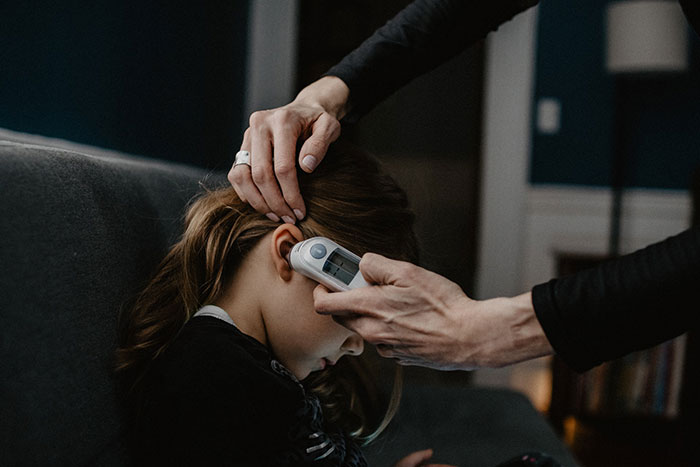
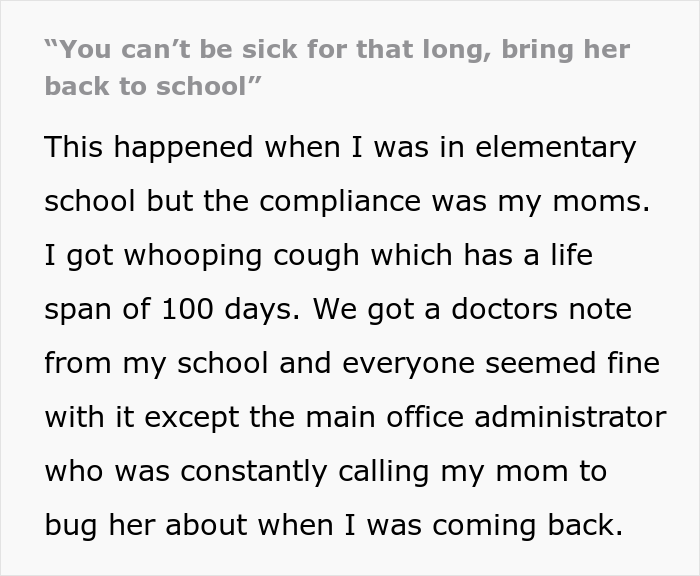
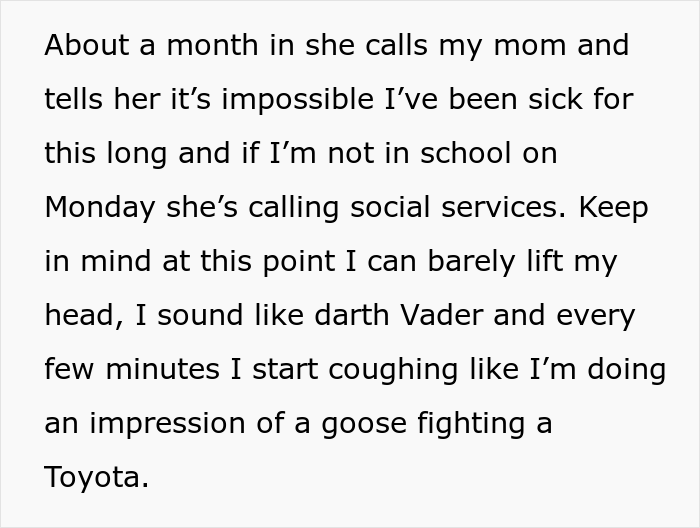
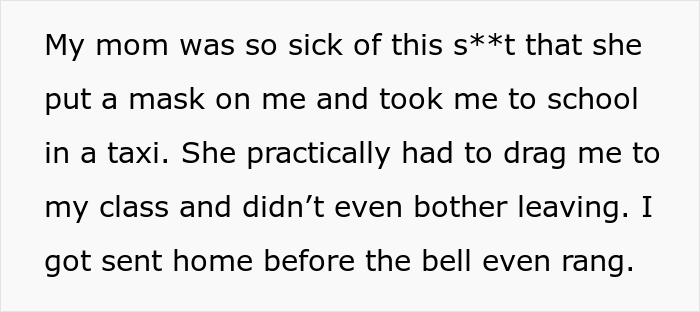
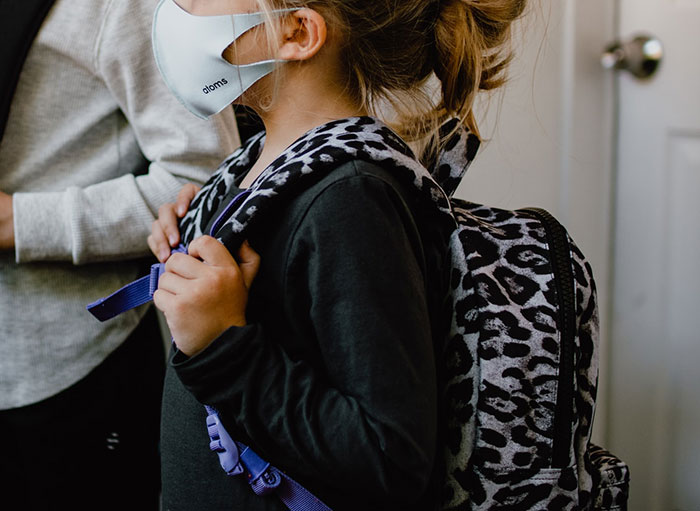
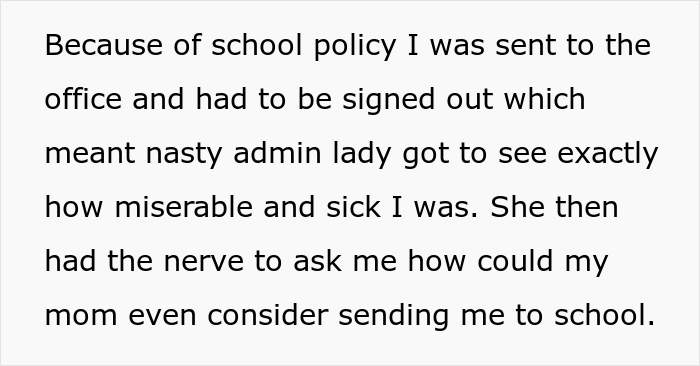
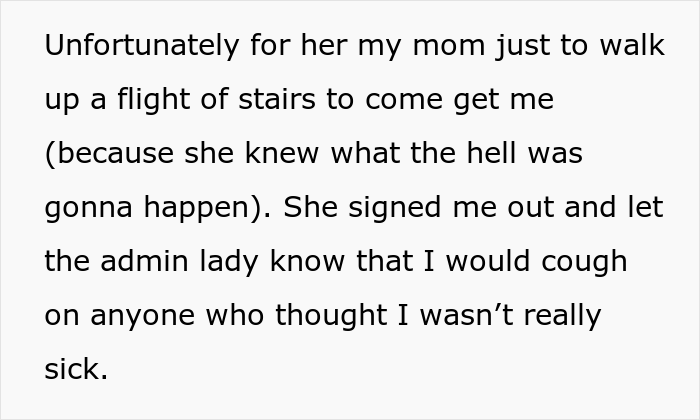
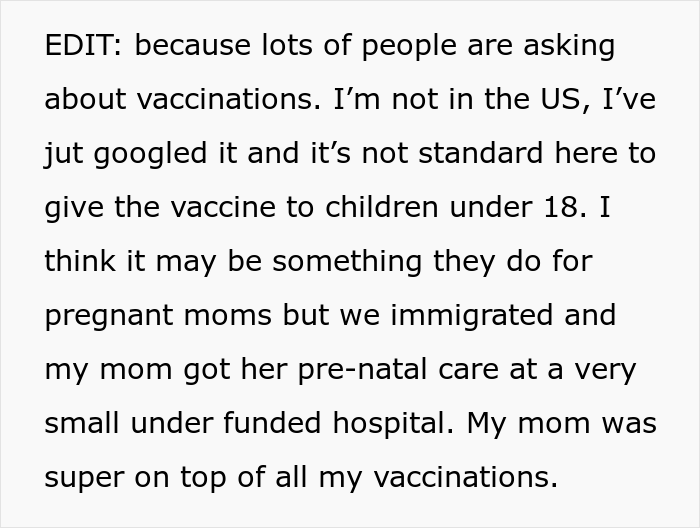
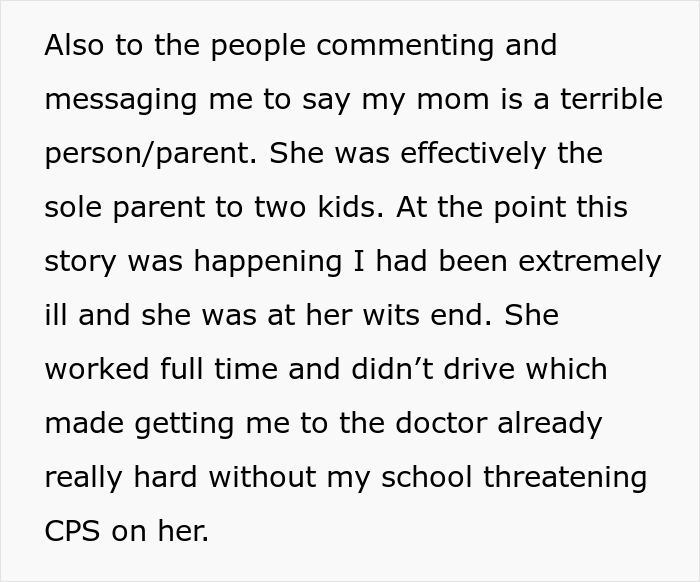
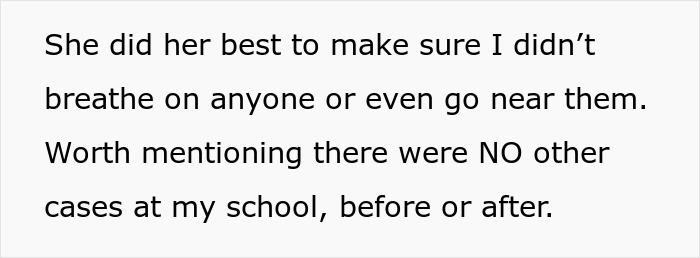
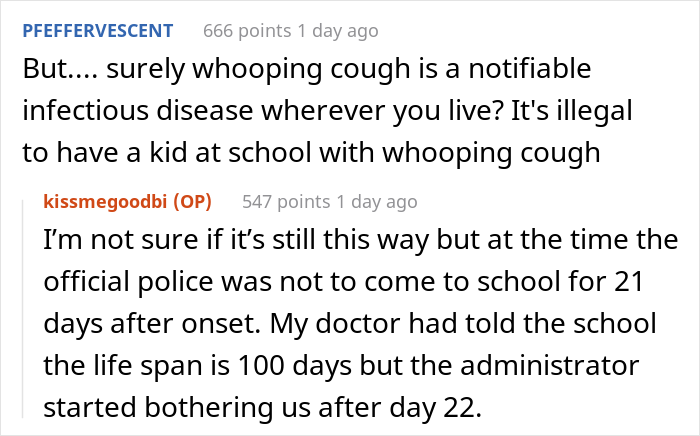
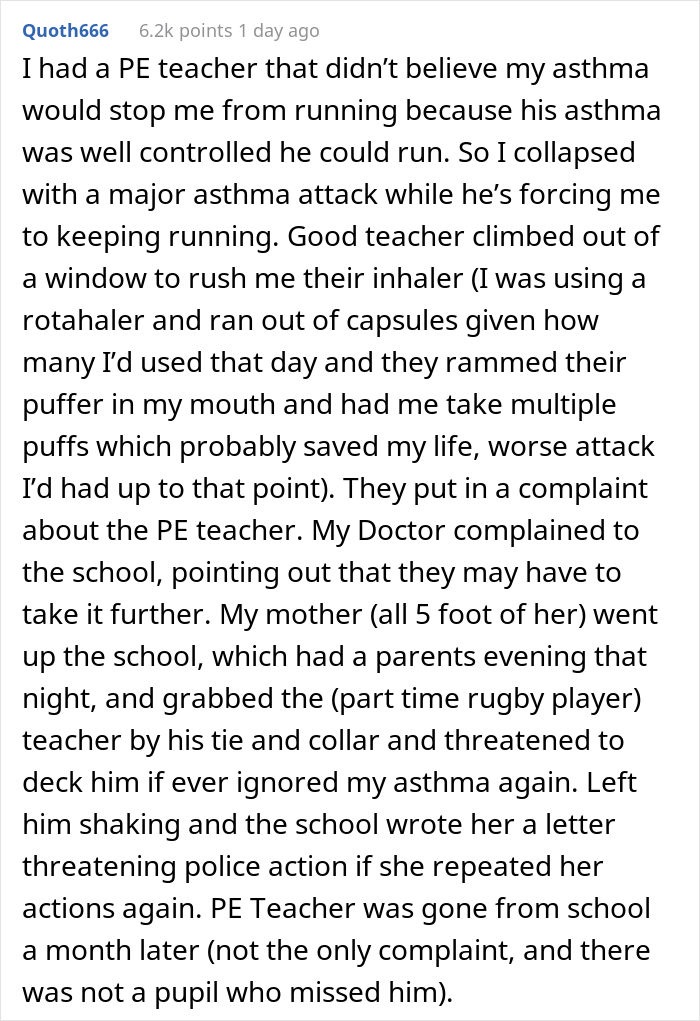
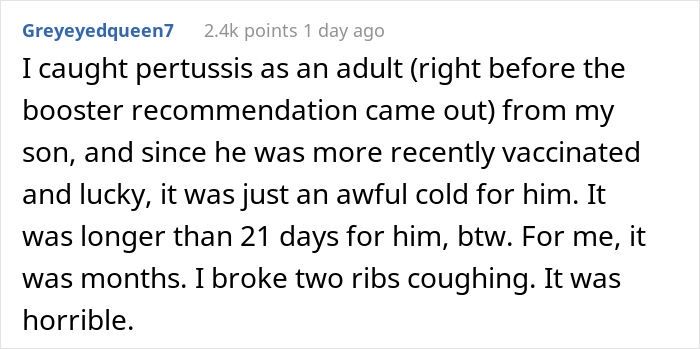
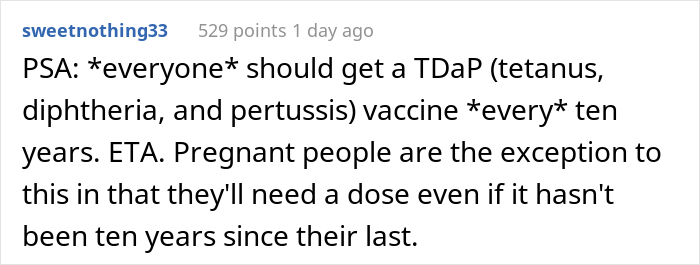

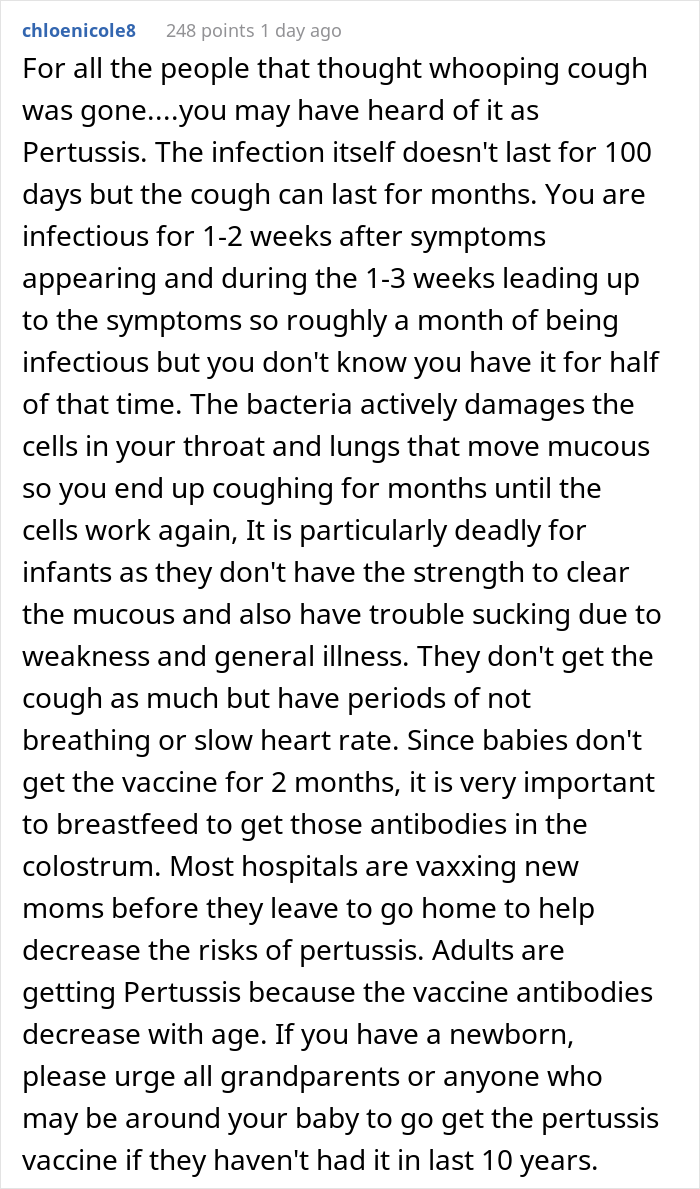

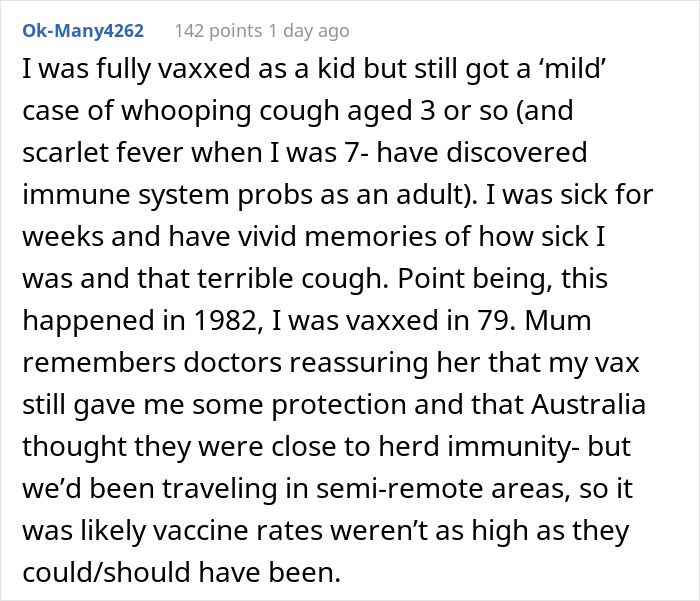
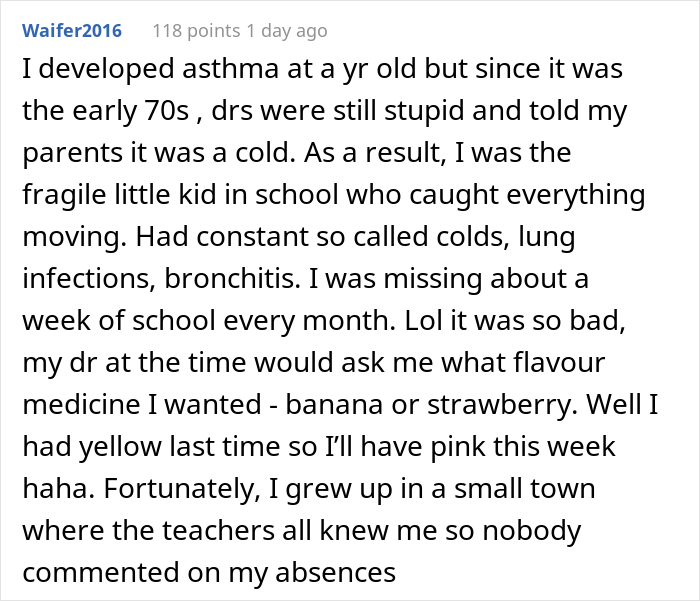
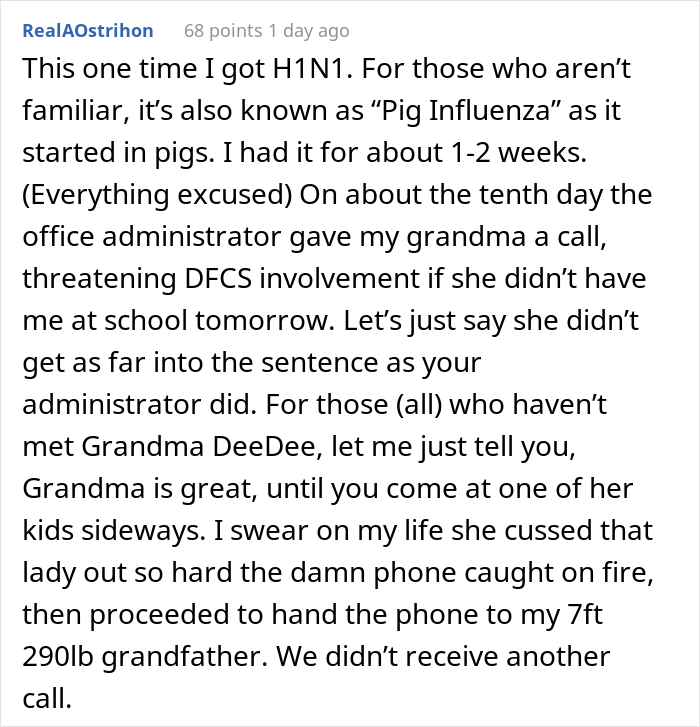


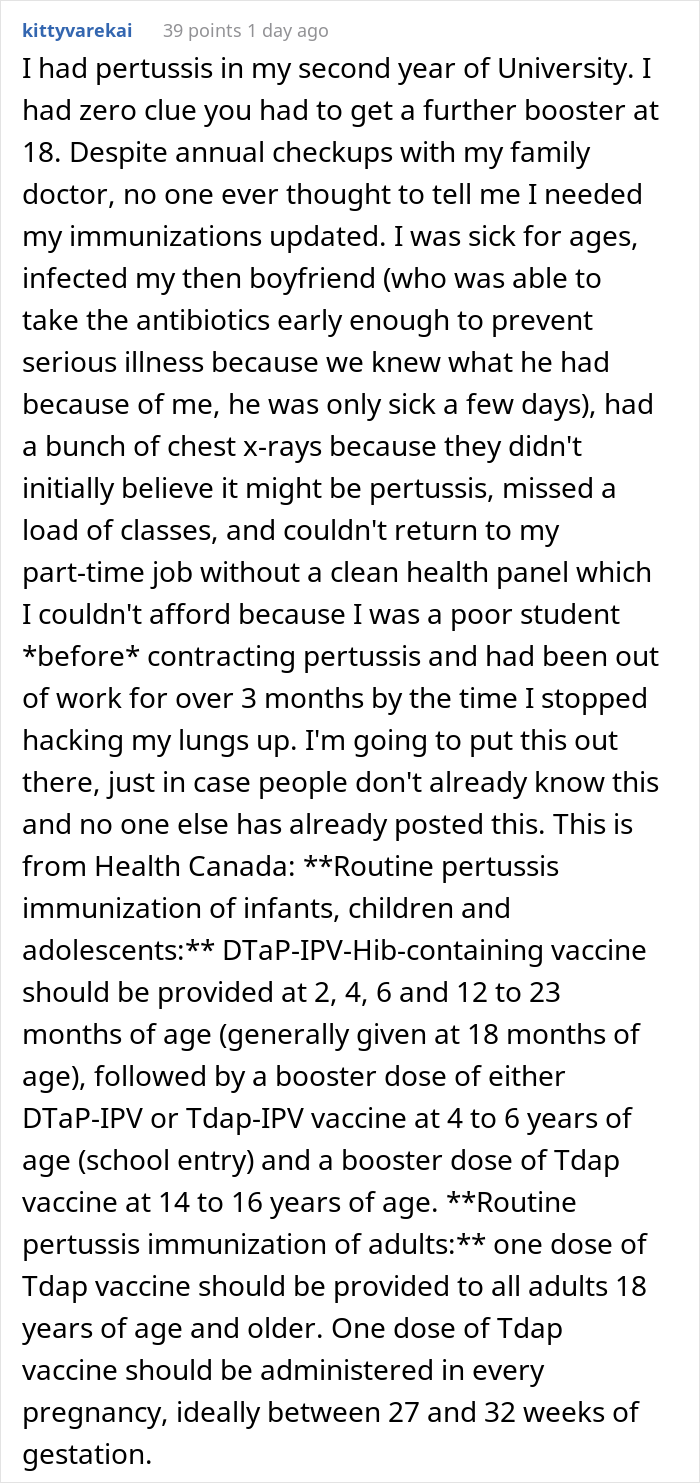
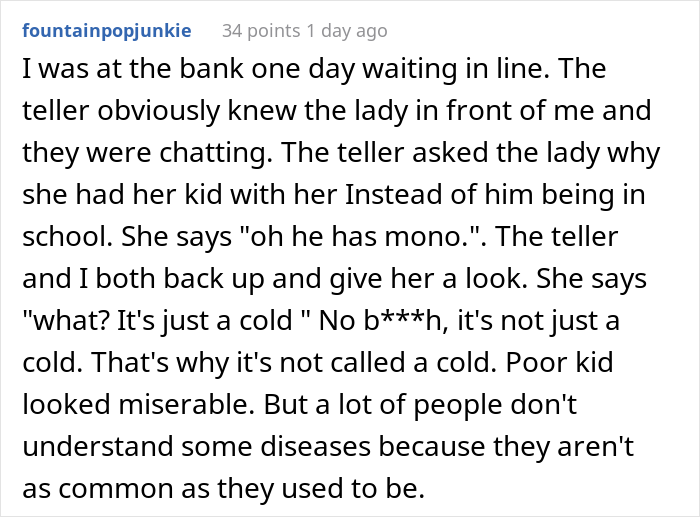
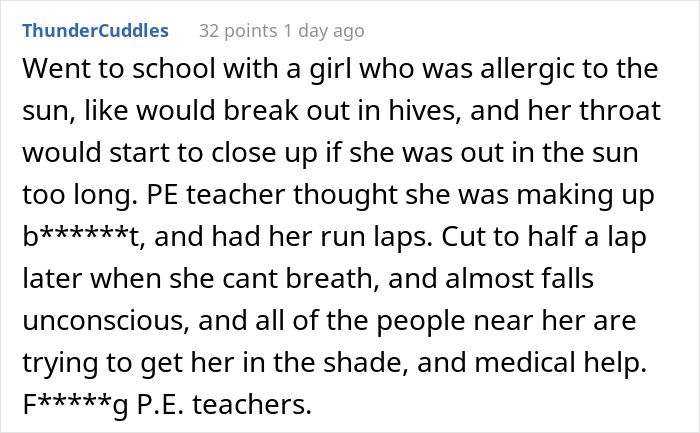
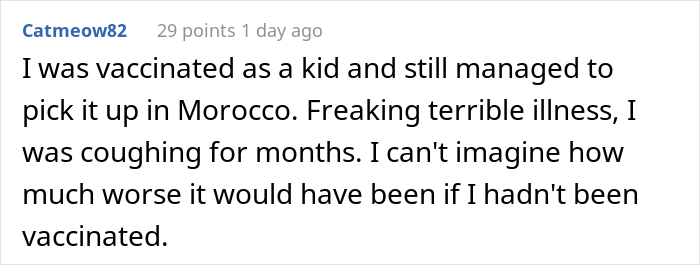
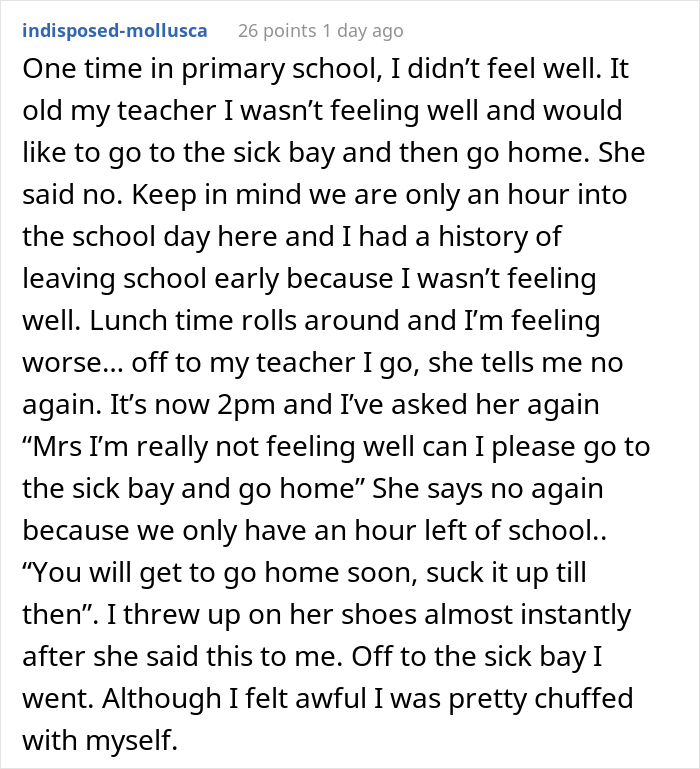
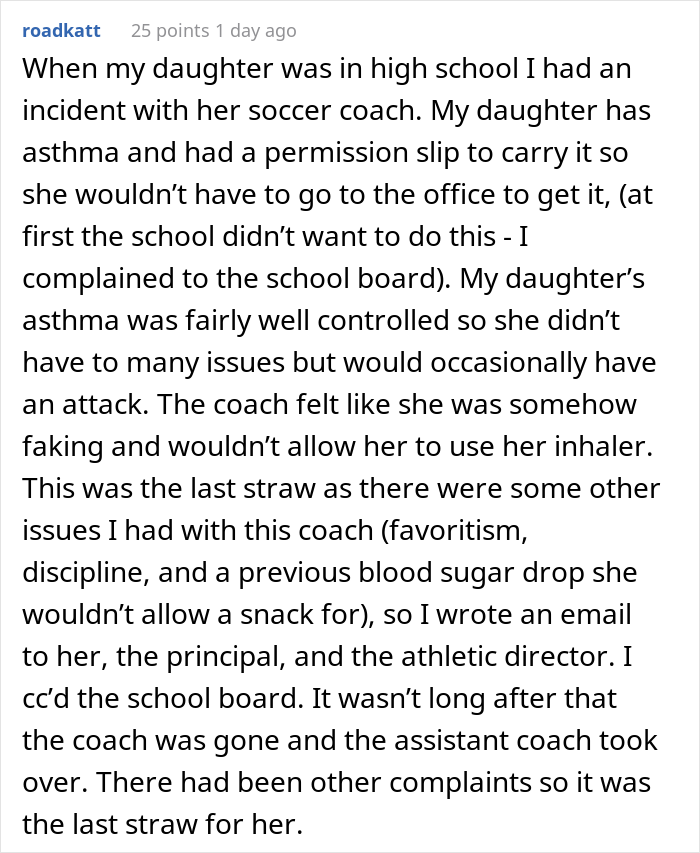
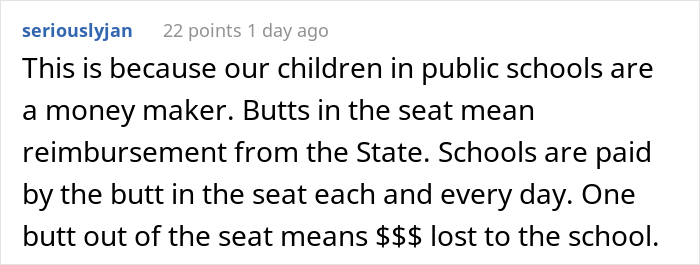
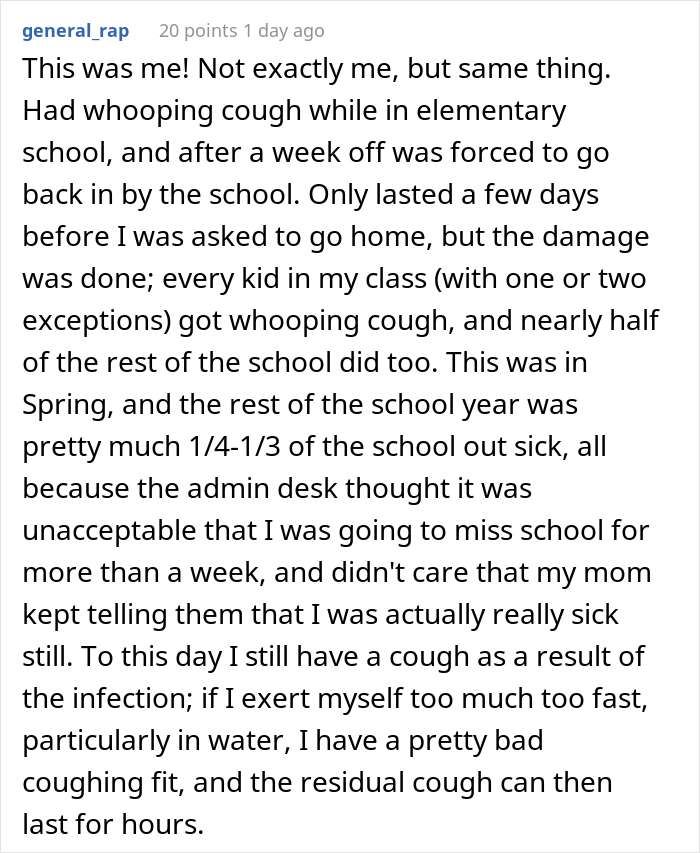
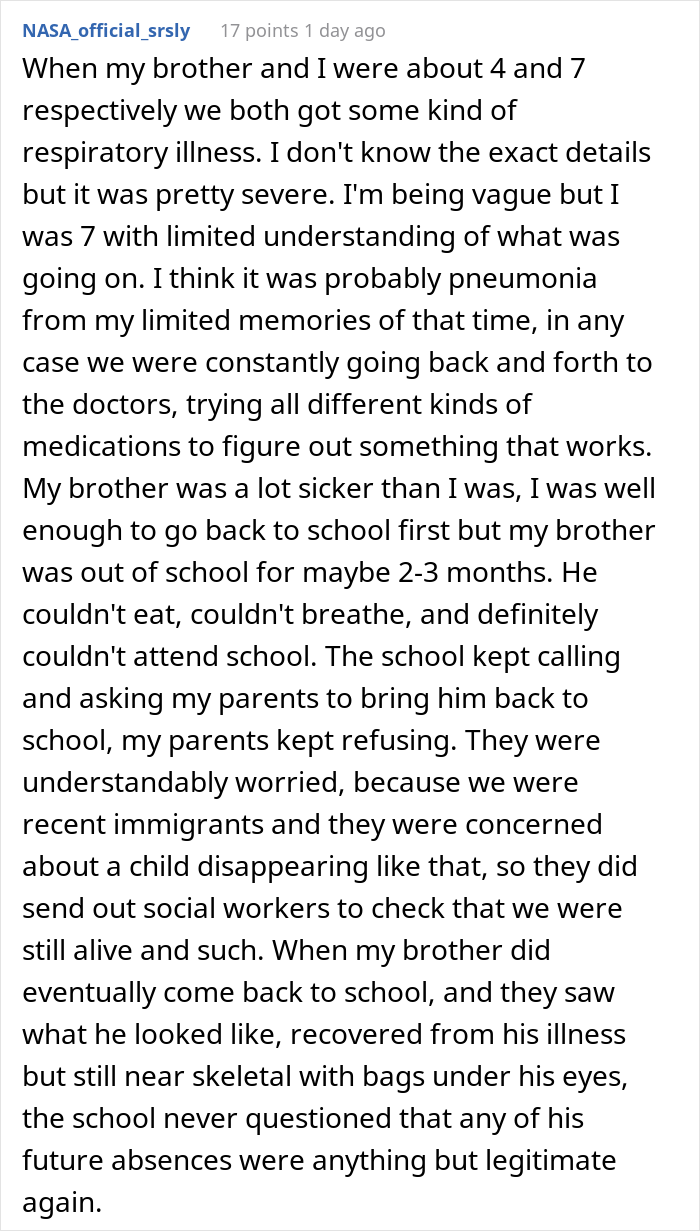




122
50